Ginseng is an herb abundant in antioxidants. It might provide advantages for cognitive health, immune response, blood sugar control, and more. Nonetheless, additional research is required.
Ginseng has a long history of use in traditional Chinese medicine (TCM). It’s a slow-growing, short plant with fleshy roots that, depending on the duration of cultivation, may be classified as fresh, white, or red.
There are several types of this herb, including American ginseng (Panax quinquefolius) and Asian ginseng (Panax ginseng).
American and Asian ginseng differ in their levels of active constituents and their effects on the body.
Ginseng contains two primary compounds: ginsenosides and gintonin. These substances work together to deliver potential health advantages.
Continue reading to explore the possible benefits of ginseng.

1. Rich in antioxidants that may lessen inflammation
Ginseng possesses notable antioxidant and anti-inflammatory qualities.
A study in 12 physically active males found that short-term supplementation with American ginseng extract reduced exercise-related muscle damage and lowered markers of inflammation versus a placebo.
Another study in mice also indicates that ginseng root extract might help diminish inflammation, though further research is needed.
Learn about over-the-counter anti-inflammatories.
2. May support brain function
Ginseng may enhance cognitive functions such as memory, behavior, and mood.
A study of 6,422 older adults found that regular ginseng consumption for at least 5 years was linked to better cognitive function later in life.
According to a review, ginseng may also help alleviate stress and could offer benefits for depression and anxiety.
A trial demonstrated that taking 200 milligrams (mg) of American ginseng significantly improved working memory after 3 hours compared with a placebo.
A review indicates that ginseng may have a beneficial impact on cognitive function in people with Alzheimer’s disease.
3. Could help with erectile dysfunction
A review suggests that ginseng may be a viable alternative for treating erectile dysfunction (ED).
A study shows that ginseng may stimulate the production of nitric oxide, a molecule that enhances muscle relaxation in the penis and increases blood flow.
Research indicates that nitric oxide may be involved in erectile dysfunction.
Still, findings on ginseng’s effects on ED have been inconsistent, and more high-quality trials are required.
A review of nine studies found that ginseng could improve self-reported ability to have intercourse in men.
However, researchers also observed that ginseng had minimal to no effect on ED or satisfaction with intercourse compared with a placebo.
Learn more about treatments for ED.
4. May enhance the immune system
According to reviews, ginseng exhibits strong antibacterial, antifungal, and antiviral properties. It may boost immune system performance.
Interestingly, a study found that black red ginseng extract (BRGE) increased immune cell counts and raised antioxidant levels in the liver.
Similarly, a trial of 100 people showed that taking 2 grams (g) of Korean red ginseng per day for 8 weeks significantly raised immune cell levels versus a placebo.
However, more human studies are needed to fully understand ginseng’s potential effects on immunity.
5. May offer potential anti-cancer effects
Ginseng might help lower the risk of some cancers.
Ginsenosides in this herb may help reduce inflammation and provide antioxidant protection, according to a review.
The cell cycle governs normal cell growth and division. Ginsenosides could positively influence this cycle by preventing abnormal cell proliferation.
The review also suggests ginseng may help lessen certain chemotherapy side effects, such as fatigue.
A 2016 review of multiple studies concluded that people who take ginseng may have a lower risk of developing cancer.
However, while research on ginseng and cancer prevention shows promise, further investigation is necessary.
6. May reduce fatigue and increase energy
Ginseng has been shown to help reduce tiredness and boost energy.
Research has linked components in ginseng, such as polysaccharides and oligopeptides, with reduced oxidative stress and increased cellular energy production, which may help alleviate fatigue.
A 2018 review of 10 studies found that ginseng could significantly improve symptoms of chronic fatigue syndrome compared with a placebo, even after as little as 15 days.
A trial showed that taking American or Asian ginseng could reduce symptoms of cancer-related fatigue when taken in doses of 2,000 mg or 3,000 mg per day, respectively.
Learn more about ways to reduce tiredness.
7. Could help lower blood sugar
According to research, ginseng appears to be helpful for managing blood sugar levels in people with and without diabetes.
American and Asian ginseng may improve pancreatic beta-cell function, increase insulin secretion, and enhance glucose uptake in tissues.
An 8-week trial showed that taking 3 g per day of American ginseng significantly lowered fasting blood sugar levels. Note that participants continued their usual diabetes treatment while taking American ginseng.
The study reported that ginseng improved hemoglobin A1c, a marker of long-term blood sugar control, compared with a placebo in people with type 2 diabetes. Larger trials using standardized ginseng preparations are needed to confirm these findings.
Incorporating ginseng into your diet
Ginseng root can be enjoyed in several ways. It can be eaten raw or lightly steamed to soften it. You can also simmer it in water to make tea — simply add hot water to freshly sliced ginseng and let it steep for a few minutes.
Ginseng can be incorporated into recipes like soups and stir-fries. Extracts are also offered in powder, tablet, capsule, and oil forms.
How much to take depends on the condition you want to address. For instance, some guidance suggests that 2,000 mg of American ginseng daily for up to 8 weeks can help manage cancer-related fatigue.
Generally, daily doses of ginseng root extract of various amounts may be appropriate. It’s wise to start with lower doses and gradually increase.
Seek a standardized ginseng extract containing 2% to 3% total ginsenosides, and take it before meals to improve absorption and maximize benefits.
Safety and possible side effects
According to available evidence, ginseng appears to be safe and unlikely to cause serious adverse effects.
However, people taking diabetes medications should closely monitor their blood sugar when using ginseng to avoid hypoglycemia. Consult your doctor before starting ginseng.
Additionally, ginseng may interact with the effectiveness of anticoagulant drugs. It can also interact with:
- calcium channel blockers and other blood pressure medications
- statins
- some antidepressants
Note that, because of limited safety data, ginseng may not be recommended for children or for people who are pregnant or breastfeeding.
It’s advisable to discuss ginseng use with a healthcare professional before starting.
The bottom line
Potential benefits of ginseng include reducing inflammation, supporting cognitive function, and strengthening the immune system. It may also help with erectile dysfunction, lower blood sugar, reduce fatigue, and lessen some chemotherapy side effects.
More research is needed to clarify ginseng’s health benefits. Consult a medical professional before taking ginseng or adding it to your regimen. They can recommend appropriate dosages, frequency, and whether other treatments might be more suitable for your situation.





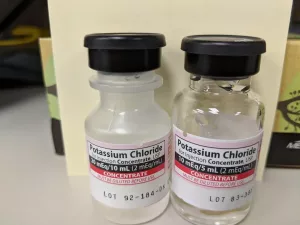
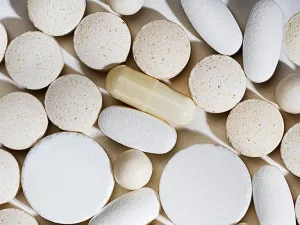



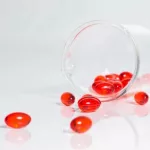



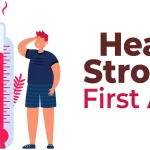
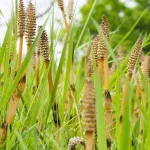
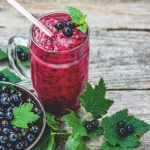



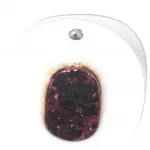




Leave a Reply
You must be logged in to post a comment.